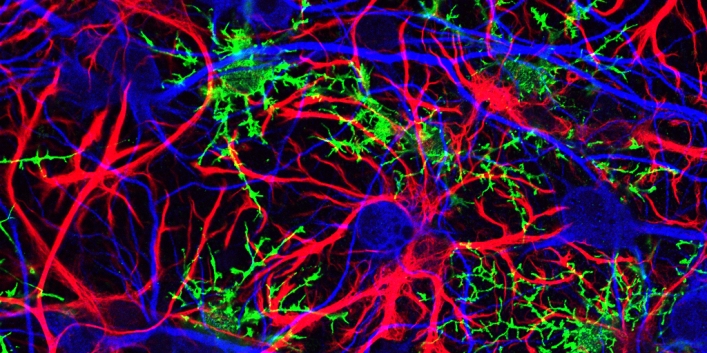Study Disputes Neurogenesis, Finds Adult Brain Producing New Cells
Columbia University researchers have now identified thousands of immature neurons in the brain region, countering the popular notion of stagnant brain growth as we age.
There’s been considerable debate about whether the human brain has the capacity to make new neurons into adulthood. This recently published study offers some compelling new evidence that’s the case. These findings suggest that a healthy person in his or her seventies may have about as many young neurons in a portion of the brain essential for learning and memory as a teenager does.
To come to this conclusion, lead author Dr. Maura Boldrini, a research scientist at Columbia University’s department of psychiatry, and her colleagues looked at the brains of 28 deceased people aged 14 to 79. Their goal was to see whether aging affects neuron production.

Previous research had shown that neurogenesis slows down in aging mice and nonhuman primates. Boldrini’s group wanted to see whether a similar pattern occurred in humans.
“The exciting part is that the neurons are there throughout a lifetime,”
said Dr Maura Boldrini. “It seems that indeed humans are different from mice – where [neuron production] goes down with age really fast – and this could mean that we need these neurons for our complex learning abilities and cognitive behavioural responses to emotions.”The brain’s hippocampus, which is responsible for memory and learning, has been a major focus of studies on neurogenesis and stem cell biology. Although neuroimaging studies of humans show that continued growth in this structure occurs in adulthood, many scientists have argued that this represents existing neurons growing larger, or an expansion of blood vessels or other internal support structures, rather than the addition of new neurons.

For their analysis, the research team spent 5 years collecting brain tissue from 59 people who had died or had such tissue removed during surgery for epilepsy at different ages, ranging from before birth to 77 years of age.
They used fluorescent antibodies to label proteins specific to cells at different states of maturity. With an electron microscope, they also looked for the characteristic long, slender, simple shapes of young neurons.
They found that people have large numbers of neural stem cells and progenitors early in life—an average of 1618 young neurons per square millimeter of brain tissue at birth. But these cells did not go on to form a proliferating layer of neural stem cells, and production of new neurons dropped 23-fold between 1 and 7 years of age, the team reports. By adulthood the supply of young neurons had petered out entirely.

“It is possible that ongoing hippocampal neurogenesis sustains human-specific cognitive function throughout life and that declines may be linked to compromised cognitive-emotional resilience,” said Boldrini, who hopes her research will contribute to further investigation of age-related conditions such as Alzheimer’s.
This study is surely not the last word on the subject. Another recent report came to a very different conclusion, and it will be important to understand these discrepancies. But if the current report is confirmed, it suggests that aging people may have plenty of new neurons to work with, given the right supports. The hope is that research findings like this might ultimately suggest new approaches, including lifestyle interventions or medications, to encourage healthy aging.






























